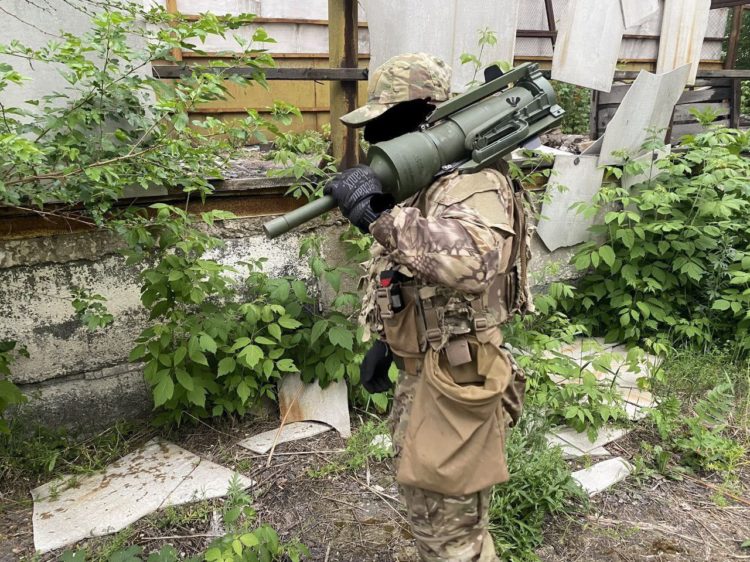What makes this mine special is that it fires a small rocket, a deviation from traditional mines that are usually detonated under a vehicle or tank. Thus, it works like a small anti-tank rocket, which is kind of cool if we do say so ourselves.
The PARM1 has an effective range of 43 yards, with the rocket having a velocity of 120 meters per second.
Later, the Germans would upgrade the PARM1 to the PARM2, the anti-tank mine in service with the Ukrainians. They upgraded the mine to have an infrared sensor, which makes it fire accurately for up to 100-110 yards, with armor penetration of 100mm even against reactive armor. Furthermore, the mine itself is fin-stabilized, fitted with an anti-tank warhead (HEAT), which can definitely blow up tanks. It also has an open sight that allows the user of the DM22 PARM2 to aim.
Best of all, especially for the Ukrainians, these PARM2 mines are easy to set up since they will not have to dig and bury the mine. Furthermore, once fired, they can get out of dodge to avoid counterattacks from the enemy forces if necessary. Ukrainians can also leave the mine set in anticipation of a convoy and ambush the Russians from the front and the rear, especially in a vulnerable environment that the Russians may try to cross such as a bridge or even along rivers that the Russian tank forces may cross.
#Ukraine: A Russian BMP ran into a Ukrainian AT mine in #Zaporizhzhia Oblast, and was totally destroyed.
A tank can also be seen abandoned by the side of the road.pic.twitter.com/dc3MzvAgO8
— 🇺🇦 Ukraine Weapons Tracker (@UAWeapons) May 28, 2022
While the DM31s have also been delivered to Ukraine, the DM22 PARM2 is the only mine the Ukrainians have reported to have used in active combat thus far. While not confirmed to be a DM22 PARM2, the Ukrainian Weapons Tracker released a video along with BlueSauron that shows a Russian BMP being blown up by a “Ukrainian AT mine” somewhere in Zaporizhzhia.
In the video, the BMP is driving on what seems to be a rural road. Various craters can be seen in the field beside it. While it is not confirmed that a DM22 PARM2 was responsible for the attack, eagle-eyed internet users saw a cloud of smoke rising from the trees in the upper left area of the video in the nearby woods, leading many to believe that the Ukrainians ambushed the BMP as when the rocket is fired, a cloud of smoke would rise from the point of launch. However, SOFREP cannot verify this as there is no other footage of the attack.
That being said, the DM22 PARM2 will see more action in Ukraine as time passes in the war, which has dragged on for four months. The world will also be looking to Germany if it will push through with its promises to send Ukraine more weapons and their renowned IRIS-T air defense system.










COMMENTS